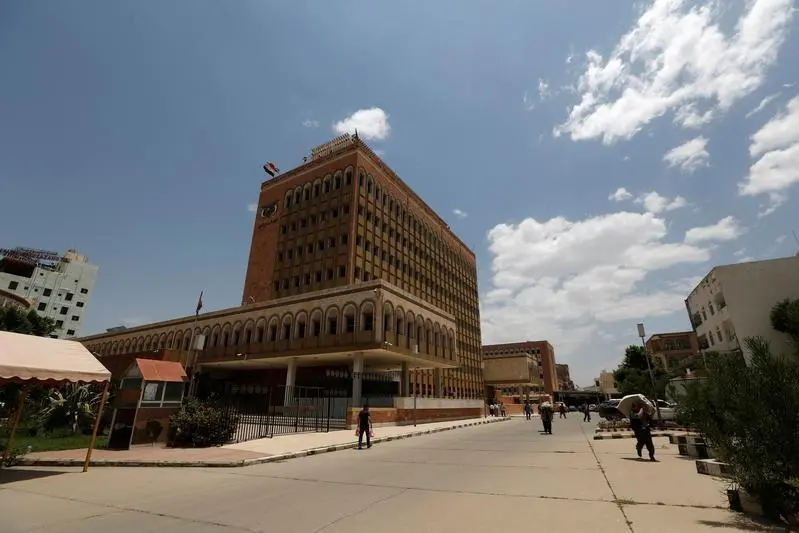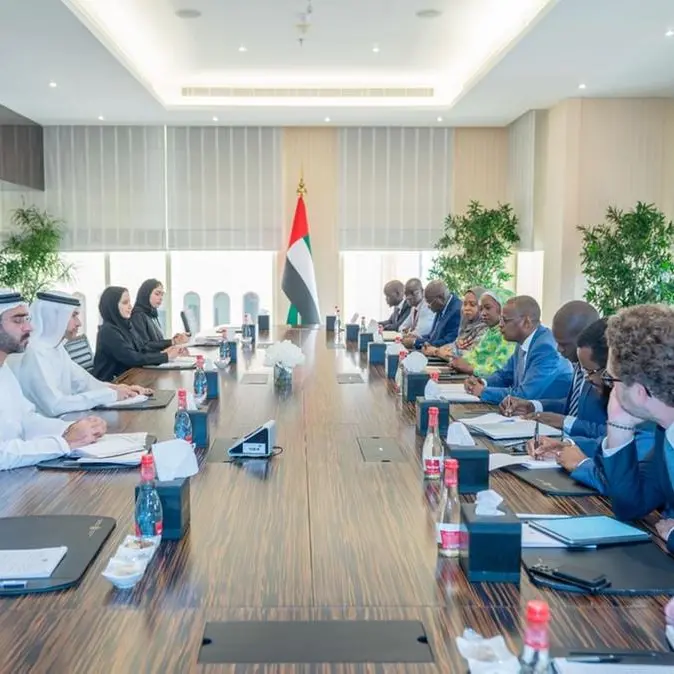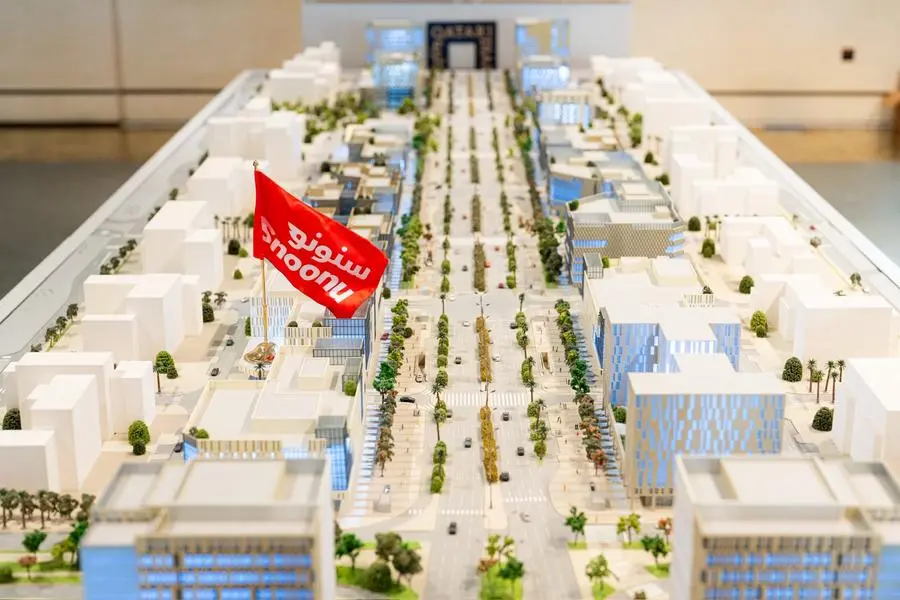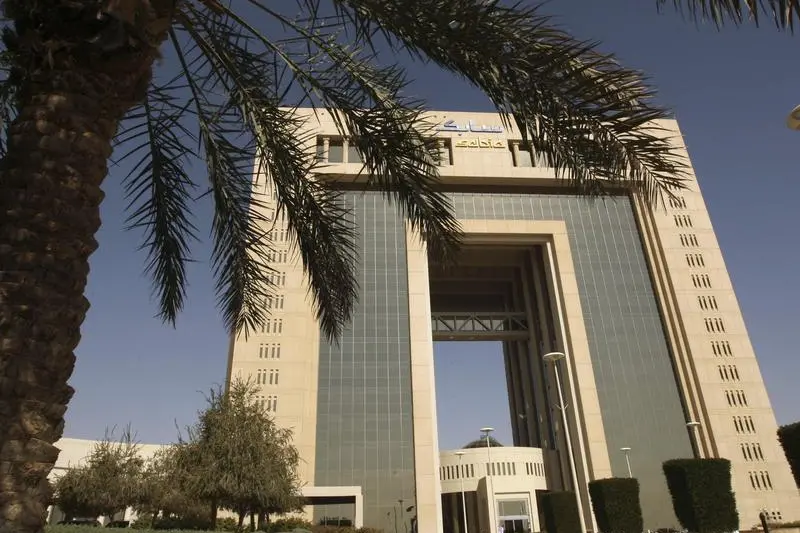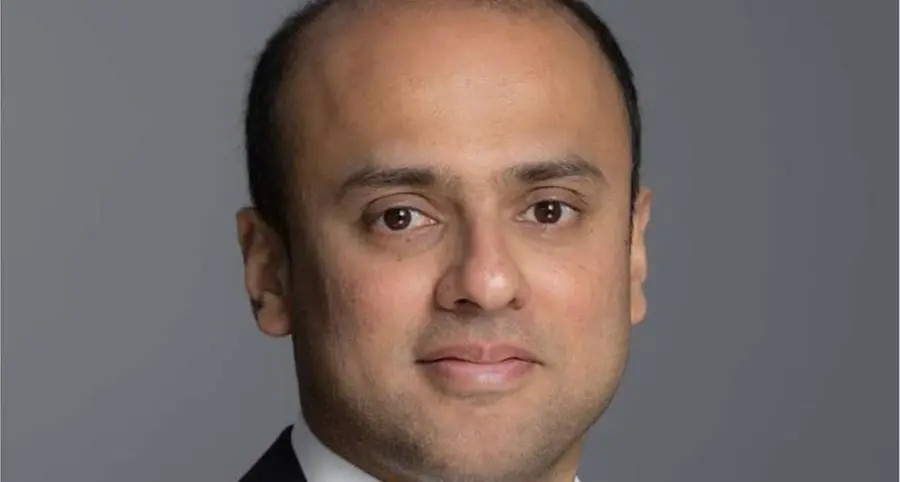PHOTO
A view of the headquarters of the Central Bank of Yemen in Sanaa August 24, 2016.
CAIRO, Sept 29 (Reuters) - Yemen's newly appointed central bank governor said on Thursday he had inherited a bank with no money, a dysfunctional monetary cycle and no working database but salaries would be paid nevertheless.
Monasser Saleh al-Quaiti told the Saudi-owned Asharq al-Awsat that his appointment had come in time to prevent the rial currency from collapsing after mishandling had led to a depletion of reserves. He pledged to keep the bank independent.
"We have to reverse the situation... I was handed over a bank empty of money, a monetary cycle that was incapable of circulating and a database that was not existent," Quaiti said.
"We will solve the salary payment problem, despite the (insurgent) Houthis keeping the database, through information stored in the branches of the central bank in the governorates."
President Abd-Rabbu Mansour Hadi appointed Quaiti on Sept. 18 and ordered the bank's headquarters be moved from the capital Sanaa, controlled by Houthi rebels from the north, to the southern port city of Aden, where his government is based.
urn:newsml:reuters.com:*:nL8N1BU0SD
Hadi is backed by a Saudi-led Arab coalition, which has been trying to roll back gains made by Iran-aligned Houthis since 2014 and restore Hadi to power.
His government has accused the Houthis of squandering some $4 billion of central bank reserves on their war effort, though the Houthis say the funds were used for food and medicine.
The bank has been keeping the country's economy afloat after nearly two years of civil war that has destroyed its financial system, according to central bank officials and diplomats.
Yemen resumed oil exports last month for the first time since the civil war began in March last year and relies heavily on foreign aid, mainly from Gulf Arab countries.
urn:newsml:reuters.com:*:nL8N1AS4E8
On Sept. 22, the International Monetary Fund said managing director Christine Lagarde met Hadi and that they had discussed the situation "including preserving the operational capacity of the central bank system so as to improve the financial stability and economic and social outcomes for the Yemeni people".
Quaiti said in the interview: "We had a good meeting with the IMF's Lagarde and she said the Fund would support the bank if the move paved the way for it to perform its duties, and the IMF and World Bank did not oppose our move."
(Reporting by Ahmed Tolba; Writing by Maha El Dahan; Editing by Sami Aboudi and Louise Ireland) ((maha.dahan@thomsonreuters.com; +9712 4082101; Reuters Messaging: maha.dahan.thomsonreuters.com@reuters.net))
Monasser Saleh al-Quaiti told the Saudi-owned Asharq al-Awsat that his appointment had come in time to prevent the rial currency from collapsing after mishandling had led to a depletion of reserves. He pledged to keep the bank independent.
"We have to reverse the situation... I was handed over a bank empty of money, a monetary cycle that was incapable of circulating and a database that was not existent," Quaiti said.
"We will solve the salary payment problem, despite the (insurgent) Houthis keeping the database, through information stored in the branches of the central bank in the governorates."
President Abd-Rabbu Mansour Hadi appointed Quaiti on Sept. 18 and ordered the bank's headquarters be moved from the capital Sanaa, controlled by Houthi rebels from the north, to the southern port city of Aden, where his government is based.
Hadi is backed by a Saudi-led Arab coalition, which has been trying to roll back gains made by Iran-aligned Houthis since 2014 and restore Hadi to power.
His government has accused the Houthis of squandering some $4 billion of central bank reserves on their war effort, though the Houthis say the funds were used for food and medicine.
The bank has been keeping the country's economy afloat after nearly two years of civil war that has destroyed its financial system, according to central bank officials and diplomats.
Yemen resumed oil exports last month for the first time since the civil war began in March last year and relies heavily on foreign aid, mainly from Gulf Arab countries.
On Sept. 22, the International Monetary Fund said managing director Christine Lagarde met Hadi and that they had discussed the situation "including preserving the operational capacity of the central bank system so as to improve the financial stability and economic and social outcomes for the Yemeni people".
Quaiti said in the interview: "We had a good meeting with the IMF's Lagarde and she said the Fund would support the bank if the move paved the way for it to perform its duties, and the IMF and World Bank did not oppose our move."
(Reporting by Ahmed Tolba; Writing by Maha El Dahan; Editing by Sami Aboudi and Louise Ireland) ((maha.dahan@thomsonreuters.com; +9712 4082101; Reuters Messaging: maha.dahan.thomsonreuters.com@reuters.net))
